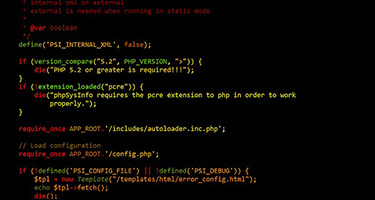Why is PHP7 going to prove better for CMS Based Websites?
PHP7 is making PHP-enabled CMS websites a whole lot better, in terms of SPEED!
Speed is a killer, longer the website loading time, greater will be the chances that the bottom line will be affected (in a negative way). But decrease the page loading time, then there will be a good improvement in the conversion rates.
According to blog.hubspot.com,
- 79% of customers who are not satisfied with the performance of a website is less expected to buy from that website again.
- 47% of customers expect a web page to load in two seconds or less.
- 64% of Smartphone users expect web pages to load in less than 4 seconds.
- 1 Second Delay = 7% Reduction in Conversions.
It is quite clear that people are quite serious about how fast a web page loads. Longer it takes; less chance will be given to a website to stay.
Everything to Know About PHP7
Before we learn how PHP7 can be a speed optimizer, it is necessary we dig out some background information.
PHP is a general-purpose scripting language that is used for server-side website development.
PHP7 is the latest version of PHP programming language and nearly 82% of websites around the world use PHP language.
Why is PHP7 so POPULAR?
- With PHPNG code merged, PHP7 promises 2X performance than PHP5.
- Uses Zend Engine 3.0 to have a better performance than PHP 5.6.
- Comes with a new operator <=> similar to TIE fighter.
- Allows developers to declare the return type of a function.
- Allows enforcing parameter and returning types (scalar type declarations).
- Provides consistent support for 64-bit architecture.
- Does not come with unsupported SAPIs and extensions.
5 Reasons PHP7 is Special over Other PHP Versions
- Low Memory Usage, Improved Speed
- With new Zend Engine 3.0, applications upgraded to PHP7 can perform 2X faster with 50% better memory consumption as compared to PHP 5.6.
- An open-source scripting engine, Zend engine interprets PHP language. The new latest version, Zend engine 3.0 which was developed for PHP 7 was codenamed phpng.
- With new Zend Engine 3.0, not only the code execution became faster, but the number of servers required can also be greatly reduced.
- Type Declarations
- PHP7 has four new type declarations for scalar types: int, float, string, and bool.
- The new declarations allow developers to avoid unintended return values by allowing them to use the accurate return type declarations.
- But what exactly is type declaration?
- Instead of allowing PHP to automatically set the type of variable, you will be declaring the same from your end.
- With Scalar type hints, the PHP programmers will find it convenient to create an easy to read code.
- Implementation of Error Handling
- Unlike other PHP versions, where error handler would stop the script in case of fatal errors, PHP7 would throw an exception instead of completely stopping the script.
- This new error handling techniques in PHP7 does not hurt the credibility, but again it doesn’t mean that the fatal error will go void, it will be there as in other PHP versions, but the only difference is an exception will be thrown to the programmer instead of a blank screen.
- PHP7 has come up with some specific errors that allow programmers to interpret the errors in a quicker way. The list includes TypeError, ParseError, Arithmetic Error, and Assertion Errors.
- New Spaceship and Null Coalescing Operators
- The two new operators, spaceship (combined comparison) and coalescing are the new inclusion in PHP7.
- – Combined comparison operator (<=>):
- The operator is used for comparing two operands/expressions and returns the value. The main purpose of using this operator is to perform sorting. See the example below,
- $compareResult = $p <=> $q
- if $p < $q it returns “-1” to the variable “compareResult”
- if $p = $q it returns “0” to the variable “compareResult”
- if $p > $q it returns “1” to the variable “compareResult”
- – Null Coalescing Operator (??):
- The operator returns the value of its first operand if it exists and is not null. It is represented by p??q, which means if p is non-null, evaluate to p; otherwise to q.
- In the syntax,
- p??q,
- – p is the first operand which is a variable of the nullable type.
- – Q is the second operand that has the non-nullable value of the same type.
- The null coalescing operator keeps the code simple and easy to read.
- CSPRNG
- To generate cryptographically secure integers and strings, PHP7 has come up with two new functions.
- – random_bytes():
- This function generates an arbitrary length string of cryptographic random bytes suitable for cryptographic use when generating salts, keys, or initialization vectors.
- Syntax: string random_bytes ( int $length )
- – random_int()
- This function generates cryptographic random integers that are found suitable when unbiased results are critical.
- Syntax: int random_int ( int $min , int $max )




 +91 8277203000
+91 8277203000
